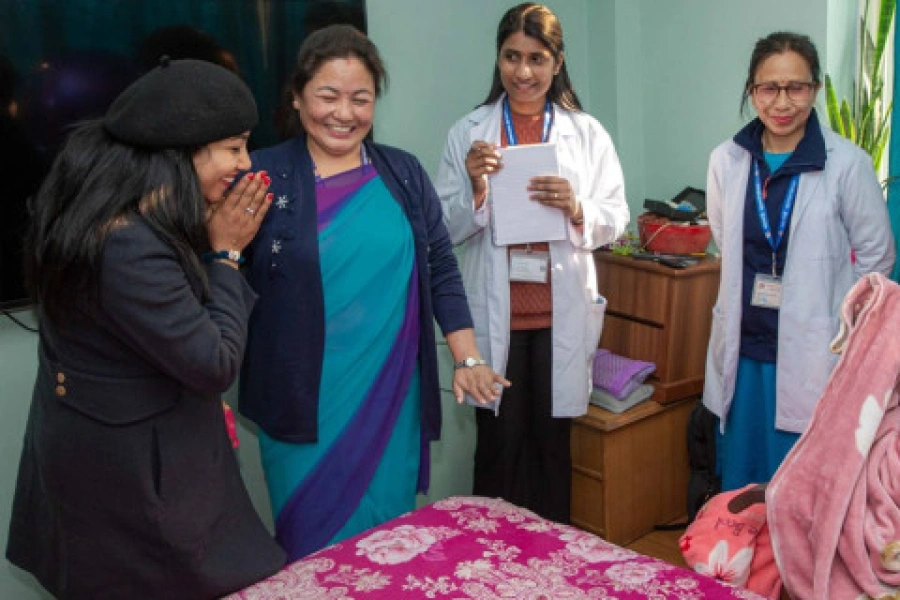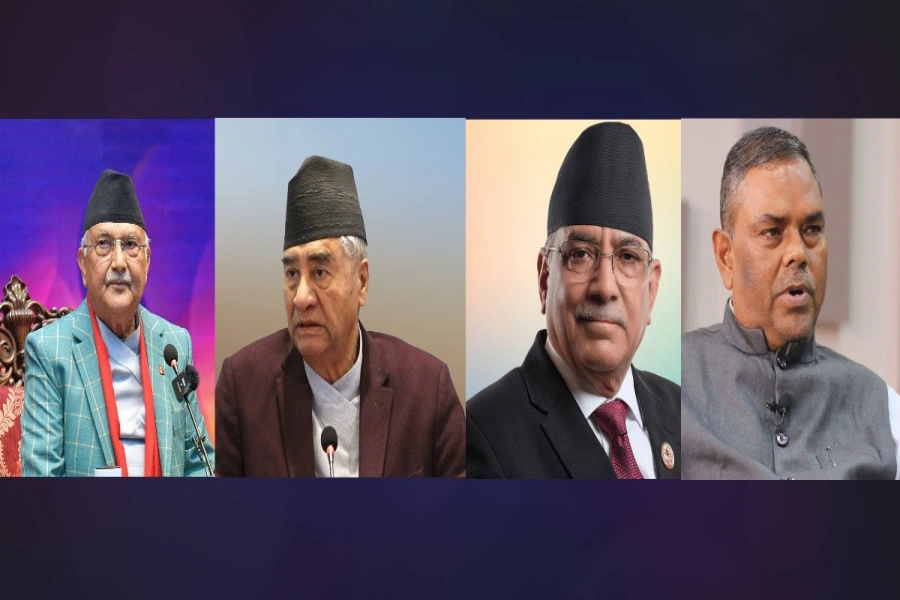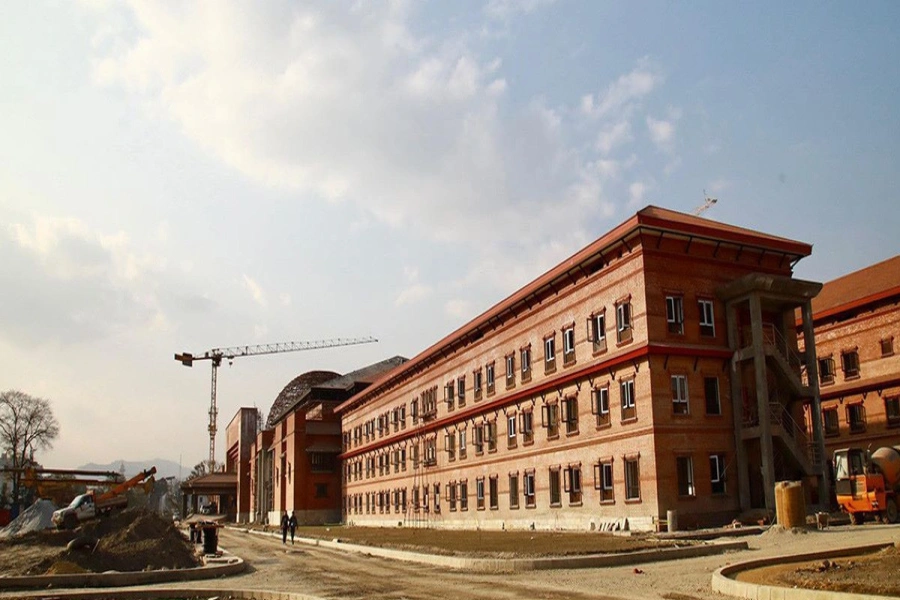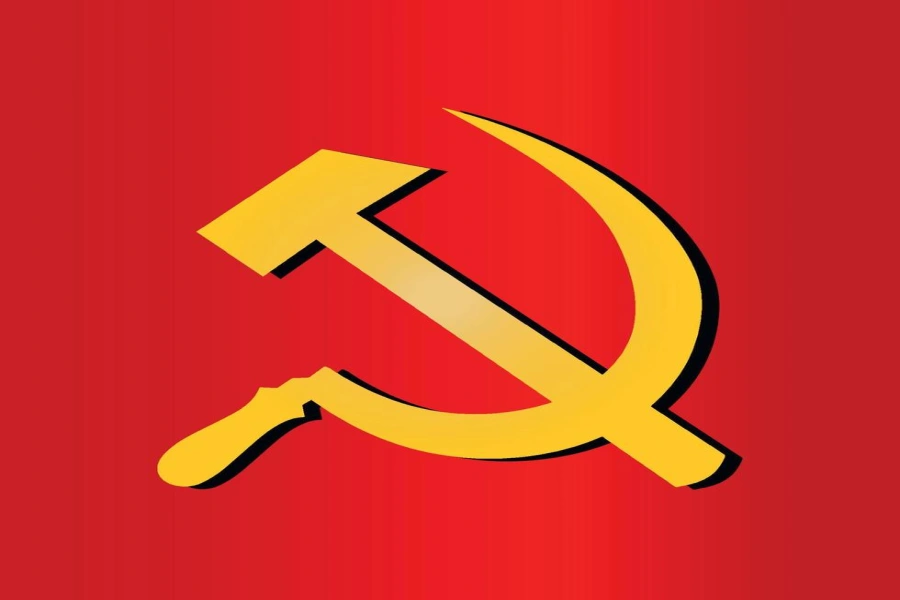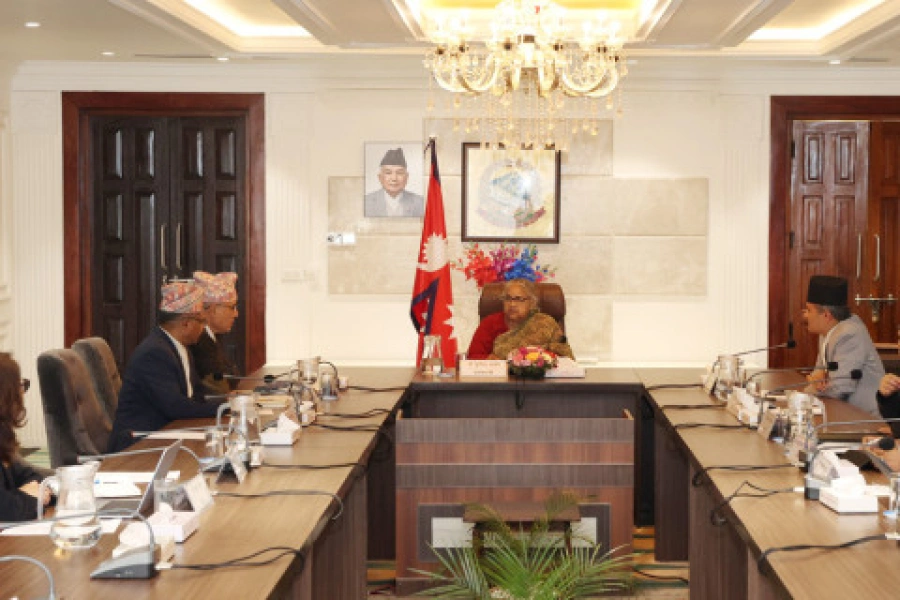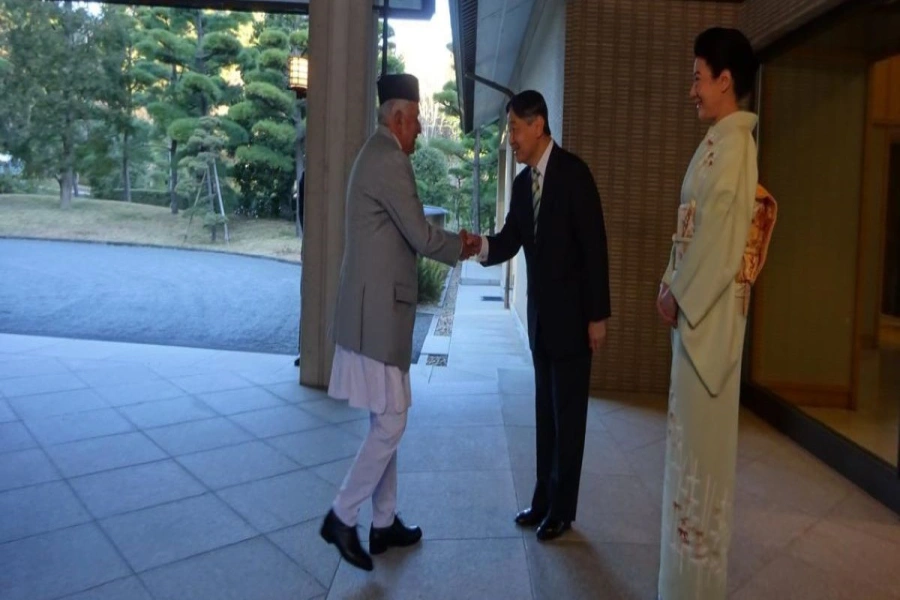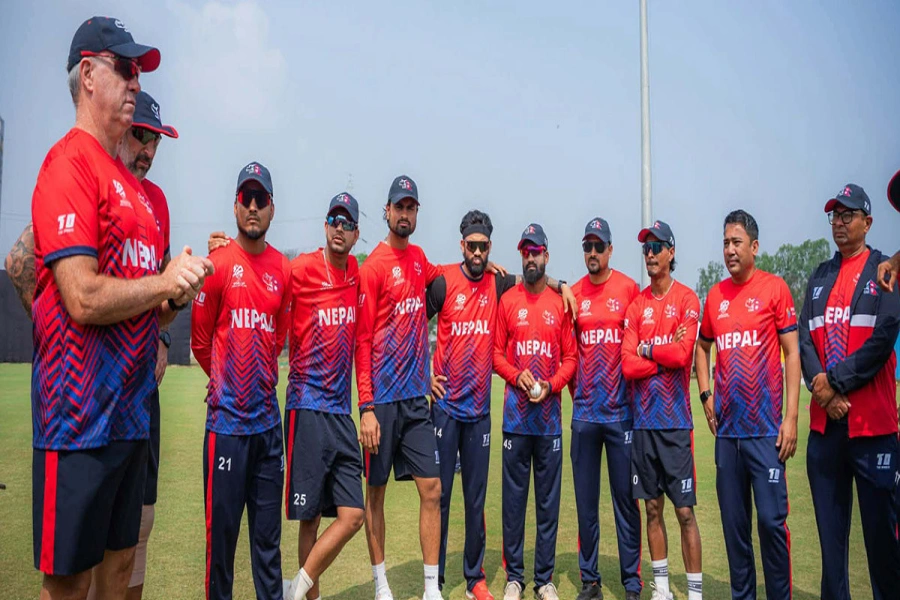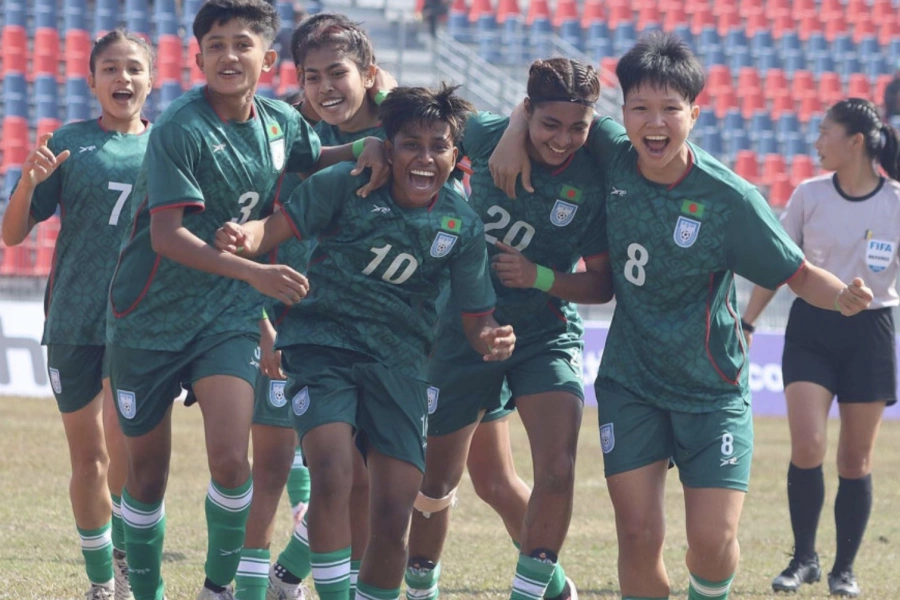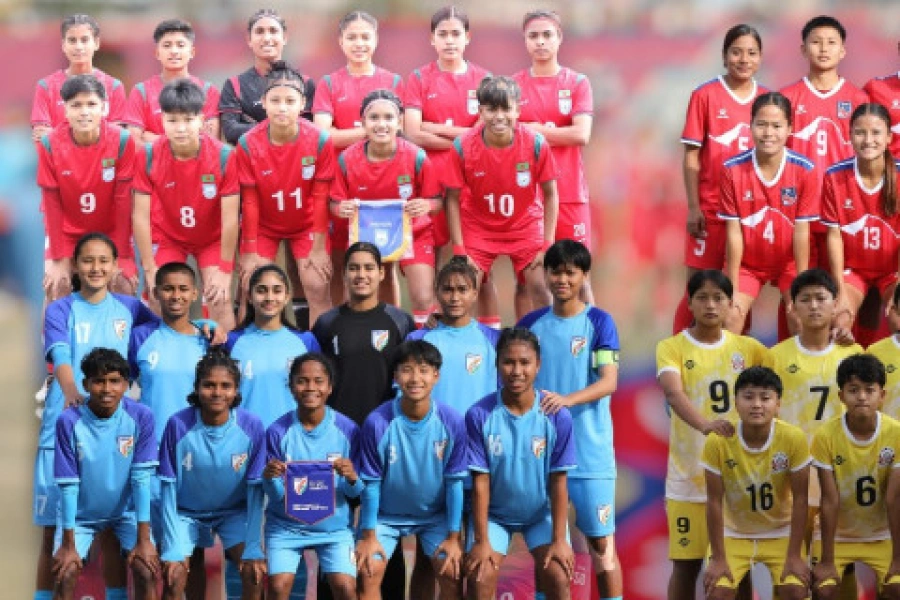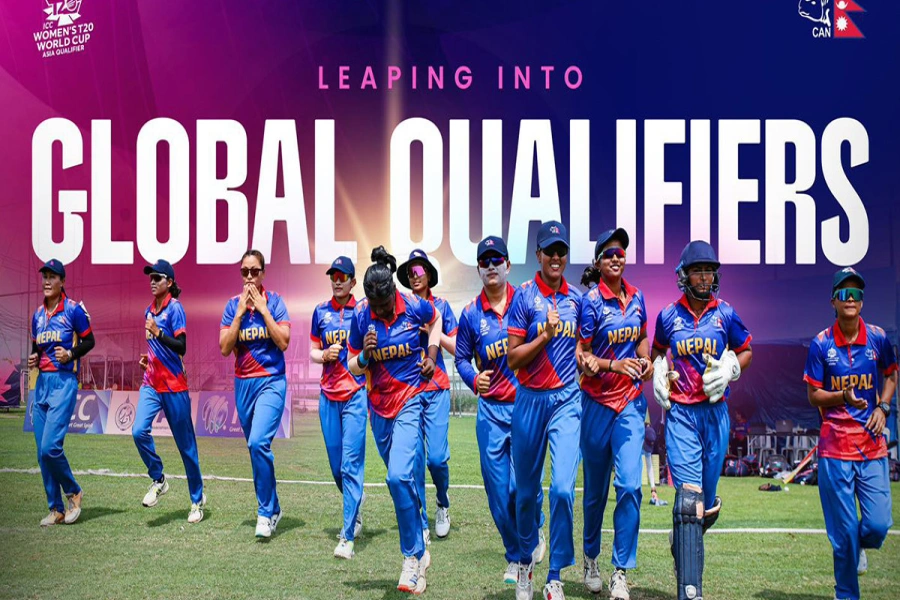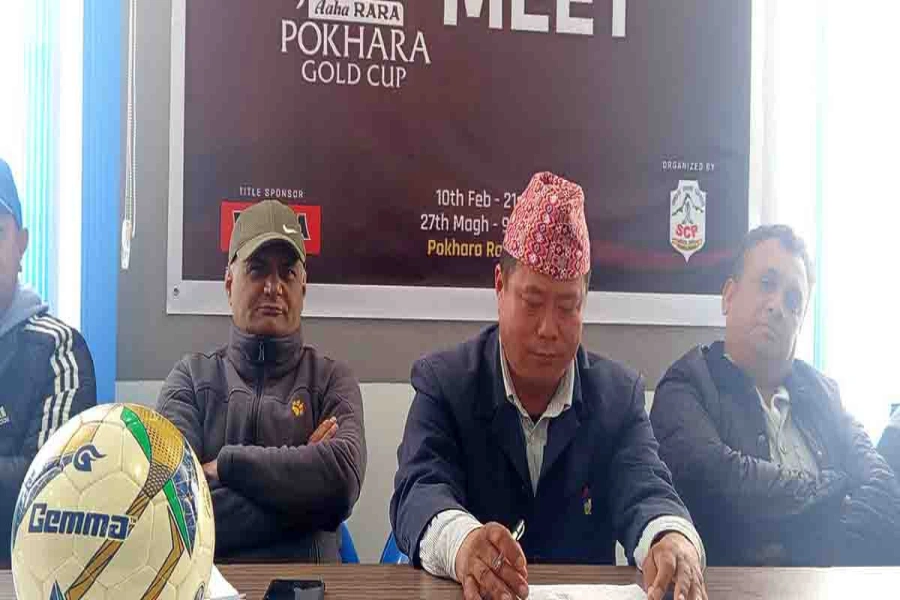Given the state of affairs since December 20, 2020 - the date of the first dissolution of the House of Representatives - the lack of constitutional norms and political morality and the character of leadership to bypass everything that becomes inconvenient for power grab, where is the leadership taking the country?
Multiple crises overlap in Nepal. At a time when the coronavirus is surging and the daily toll is mounting, Prime Minister KP Oli, with cooperation from the ceremonial head of state, has pushed the country into a constitutional, institutional, democratic, political and economic crisis. This has added to the people's sufferings and hardships. As the people suffer from the Covid-19 pandemic, political leadership prioritizes power over the pandemic and effectively abdicates the responsibility to protect the people. The PM's flouting of all constitutional norms and play of political populism, opportunism and double standards in foreign policy has irreparably destroyed the credibility of the leadership and the government. Confidence in the government and the country’s democratic institutions is at an all-time low. The mess is becoming messier and the situation is becoming precarious. The Prime Minister’s actions only fuel authoritarian tendencies. There is little hope of democratic renewal as long as this government continues to be in power.
Crisis deepens
Having failed to manage the intraparty differences, on December 20 last year, Prime Minister KP Oli chose to punish the highest elected representative institution: the House of Representatives and recommended its dissolution, cutting short its life by two years. The Supreme Court subsequently reinstated the House on February 23, terming the dissolution unconstitutional. The court in its verdict said that as long as the possibility of forming an alternative government exists, parliament cannot be dissolved.
The prime minister did not attend the reinstated House for a single day from February 23 to April 19, when it was in session. The House got no business from the government. The prime minister decided to convene a special session of parliament to seek a vote of confidence on May 10. He failed to obtain the confidence of the House and ceased to be the Prime Minister. As no alternative emerged in the given time of 19 hours by the president, Oli was again appointed as the prime minister in his capacity as the leader of the largest political party in parliament under Article 76 (3) which required him to prove a majority in parliament within 30 days.
On May 20, he went to the president and said he had no enough votes to get the confidence of the House and therefore, recommended to the president to explore alternative possibilities under Article 76 (5) which says President shall appoint any member of the House as prime minister who will seek a vote of confidence no later than thirty days after the date of such appointment. Majority members of parliament (149 members in a House of 275) came together with a view to check the recklessness of the PM's behavior and safeguard the constitution supporting opposition leader Sher Bahadur Deuba to form an alternative government. That was a big shock to Prime Minister Oli who was determined to remain in office by any means. The man who had expressed his inability to gather support only a day earlier, and at a press conference hours before, went to the president on May 21, claiming the support of 153 members. In a desperate move, he included the names of members of parliament who had signed the candidature of the opposition leader as an alternative prime minister.
Quo Vadis?

The president was seen acting in a discriminatory manner. Instead of sending the opposition claim for a 'floor test' in parliament, the president favoured KP Oli who had failed to secure the confidence of the House, and was in minority. In addition, contrary to the constitutional provisions, the president agreed to the PM's recommendation to dissolve the House for a second time in six months. A presidential statement issued in the midnight of May 21 said neither the caretaker Prime Minister KP Oli nor opposition leader Sher Bahadur Deuba were able to demonstrate to form the government, and therefore called for elections on November 12 and 19. This was in flagrant violation of the constitutional provisions, pushing the country into a serious turn. Opposition parties have filed writ petitions at the Supreme Court against the PM's move to dissolve the House of Representatives and order fresh elections. The constitutionality of the House dissolution is before the Supreme Court. The independence and impartiality of the highest court is on test as the government itself has gone to question the constitution of the Constitutional Bench that will look into the case. Partisan interest has not even spared the apex court.
This comes at a time when the Covid-19 pandemic and the attendant economic crises are compounding the people's hardships and sufferings, and plunging millions further into a poverty trap. Experts are warning of the third wave. The PM has chosen the coronavirus as a pretext to stick to the prime ministerial throne and silence dissents. People cannot come out and organize protest demonstrations during the lockdown.
PM Oli has defied all norms of constitutionalism. The possibility of making and unmaking the government rather than the long-term interest of the country occupies his mind. He is manipulating as the leader of the largest political party. He should understand that formation of government through manipulative politics is disastrous politics. As he continues to use every foul trick to stick to power get repeated, there is only rot and rot every hour.
The decay of hard-won democracy in Nepal is undeniable. There is a crisis of governability. Many national institutions associated with liberal democracy look messy, influenced and worn out and decimated at all levels. Corruption is structural. There are credible charges of corruption but the government goes selectively in investigating them. The people feel alienated, with the government effectively abdicating its responsibility. The government’s policies and programs are largely diluted or tailored to meet political exigencies. The PM has shown no insight to extinguish the flames of people's growing anger and discord, indifferences and humiliation.
PM Oli has squandered the people’s trust. His reckless choice on repeated dissolution of the House of Representatives in defiance of the Supreme Court verdict is an affront to the people’s trust. Given the standard that he is setting, the constitution which was a culmination of seven decades of incessant and arduous struggles and sacrifices, has been derailed. He seems bent on destroying it. He has exploited openness, diversity and tolerance of liberal democracies and pushed it to the edge.
His behavior is deliberately contributing to the erosion of what makes the democratic systems work for the people. Whoever comes to replace him, will have to clean the Augean stable of non-performance, corruption, treachery, and betrayal to overcome the dysfunction of democracy. Democracy is like a growing child that needs close and careful nurture. Democratization is a process and does not happen overnight. It needs democrats to mature. While election is important in democracy, election in a politically and pandemically charged atmosphere will only spark more discord, anger, disease, and violence. As experts are hinting at the third wave anytime soon, the coming days may even be worse with the third variant estimated to hit the country in three to four months.
Covid-19 started toward the end of 2019 and continues its rage. The infection has risen faster than before in younger people in their 30s and 40s. In early March, Nepal was reporting around 100 new daily Covid-19 cases; in May, the daily cases shot up to more than 9,000, the highest since the pandemic began and about 200 people were dying a day, according to the health and population ministry. The immediate concern has been the lack of oxygen. Nepal fares the worst in South Asia. At a time when there is a need for more and more vaccination, the PM says, “even vaccines cannot guarantee 100% protection.” Covid-19 has changed everything, and its consequences are going to be far reaching. Many analysts predict that the world “will be poorer, and more authoritarian.” The coronavirus pandemic seems to be a perfect storm accelerating toward that direction.
PM Oli's behavior is subverting the very democracy that elevated him to this position with a near two-thirds majority. Now he heads a minority government and has failed to win the confidence of the House as his own party is bitterly divided. However, the PM is running the state like a one-party state with an all-consenting ceremonial president. A number of institutions that limit the prime ministerial powers are utterly undermined. All activities demonstrate that he intends to establish his personal control and create a set of extractive economic and political institutions whereas the constitution requires them to be inclusive. But when he speaks, he projects himself as a savior of the people and a development leader.
The prime minister has pushed the country backward. It seems the government is running a cleansing campaign of democracy. We are losing whatever democratic gains we achieved in the last 70 years. For power, he has decided to punish the nation and the people. Utter disregard for checks and balances has hit the rock bottom. His mission of state capture resembles his nostalgia for a dictatorship. Strongman rule seems to be his temptation at a time when democracy is declining and an axis of authoritarianism is gathering tide worldwide.
Democracy for unity
Nepal is a multiethnic, multilingual, multi-religious and multicultural society. Democracy is the most realistic way to bring them together and present a unique unity in huge diversity. It is only democracy that will help to resolve differences, share power and heal divisions. Democracy is the only way for development. It is only democracy that makes development inclusive, broad-based and equitable. What is troubling is that all the foundations of democratic institutions have been weakened, made ineffective, and sidelined, violating the limits of effective checks and balances that put limits on the chief executive.
Strong institutions are the backbone of democracy. It is the set of sound and strong institutions that stand in defence of democracy as was demonstrated in the United States of America on January 6, despite the sitting President trying to turn it in his favour. Democratic consolidation requires more than holding of elections, the existence of political parties or writing of a constitution. Samuel Huntington said, democracies lacking legitimacy could not become effective, lacking effectiveness they cannot develop legitimacy.
The most challenging task democracy faces today is the shrinking of a middle space or center which could connect the top to the grass root levels. The most worrying part in Nepal is that the center has shrunk and the democratic space is taken away by either right wing radical or radical left. Populism on both the right and left has accelerated this process. Nepali Congress (NC), the premier democratic party in Nepal ever since its birth, has led several democratic movements in Nepal and worked to democratize the non-democratic elements in the country, and mainstream them in peaceful constitutional democratic politics. These forces show lip service to constitutional democratic politics in words but utterly lack it in action. They are seen harming democracy at every available opportunity. Working with communists has only led to the erosion of NC's founding fundamentals. With the weakening of the center and shrinking of the middle space, there is a grave threat to democracy, stability, and integrity of the country.
When governance is weak, and institutions are in shambles, external powers look to prey on these vulnerabilities. If we look across the globe, weak states are found to be the victims of geopolitical rivalries. Situated in a sensitive geostrategic location, Nepal is in the attention of emerging and established powers. Geostrategic rivals are out to undermine each other, use every outlet to undermine, counter and contain each other. There is an intensified geopolitical rivalry between China and the United States at the global level. The US Secretary of State, Antony Blinken has said, the US -China relationship will be the most challenging diplomacy of the 21st century. He considers the US-China relationship to be “competitive when it should be, collaborative when it can be, and adversarial when it must be.” The Biden administration is reported to be working to fully integrate in its strategy, the consideration of how US engagement in fragile states affects, and is affected by, broader geopolitical interests, and then accordingly devise its work to an effective, and strategic response.
It is sad that when his personal interests were threatened, Prime Minister Oli chose to push the country into difficulties. This bodes ill for the stability of Nepal and the well-being of the people. The political volatility and institutional fragility will produce profound consequences for Nepal in a sensitive geostrategic location. As progress in one country is not possible without progress in the neighboring countries, and so is national security. As Nepal’s national security becomes perilous, it is sure to have spillover effects on its neighbours and beyond. Both emerging and established powers will not be watching the unfolding drama for long and be mere spectators if this goes against their interests from the Nepali territory.
Government leadership has deviated from the constitutional path, democratic path, principled path, and institutional path. Contrary to the constitutional requirements to make state institutions inclusive, Prime Minister Oli is fond of making them extractive. Daron Acemoglu and James Robinson in their book, Why Nations Fail: The Origins of Power, Prosperity and Poverty, show an example from Zimbabwe, how extractive institutions are made to work in the ruler's favor. They cite an example of how Robert Mugabe, who fought for the independence of Zimbabwe ruled the country by hook or by crook and usually with an iron fist. He put all national institutions under his personal influence. Even the drawing of the national lottery would have to favor President Robert Mugabe. Extractive political and economic institutions are always at the root of governance failure leading to state failure. The economic and political failure in Zimbabwe that came from a set of extractive institutions is being manifested in the Oli-garchy in Nepal. The set of extractive political and economic institutions block opportunities and economic growth. Pervasive corruption in the state institutions and the absence of any opportunities in the country for youth generate civil conflict precipitating state failure.
Given the state of affairs since December 20, 2020 - the date of the first dissolution of the House of Representatives - the lack of constitutional norms and political morality and the character of leadership to bypass everything that becomes inconvenient for power grab, where is the leadership taking the country? One of the world's "top thinkers," and a geopolitical analyst, Robert Kaplan in his book "Revenge of Geography" warns, "if the Nepali government cannot increase state capacity, the state itself could gradually dissolve." Where are we headed? Where is Prime Minister Oli leading the nation? Quo vadis?



